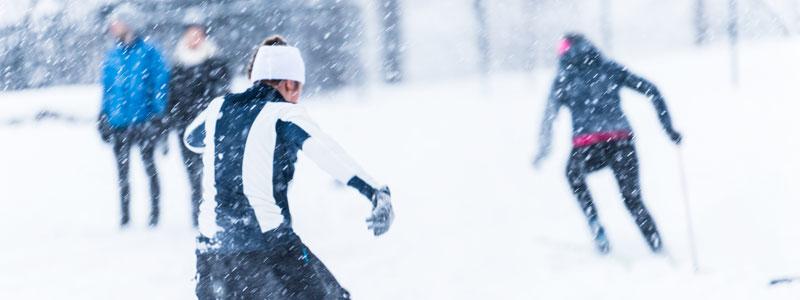Program - Bodily learning 2021
Program

Registered participants will receive information on how to log in to the conference app and how to access the necessary links.
Time zone
Due to the fact that the conference will be virtually there will be different time zones for the participants. We hope this will not be too problematic for some of you. Bodily Learning will be held in GMT +2, Oslo-time.
Thursday 22 April
08.30–08.45 Opening/welcome by the committee
08.45–09.00 Opening words Eeva Anttila
09.00–09.45 Keynote Dr. Alfdaniels Mabingo (35 min + 10 min discussion)
Chair: Eeva Anttila
09.45–10.00 Break
10.00–11.30 Parallels
Single paper presentations
Chair: Anne Grut Sørum
10.00–10.30 Ann Kari Orset
Theatre students experiences of bodily learning in neutral mask classes
10.30–11.00 Bente Fossvold-Jørum
Teaching Mona Lisa -an aesthetic approach to learning art history in teacher education
11.00–11.30 Hannah Kaihovirta, Ann-Christin Furu
Embodied Learning, Visual Practices and Multimodal Storytelling in Early Childhood Teacher Education
Panel presentation
Chair: Øyvind Bjerke
10.00–11.30 Gunn Engelsrud, Bjørg Oddrun Hallås, Reidun Nerhus Fretland, Ove Olsen Sæle, Vegard Fusche Moe
How the concept of bodily learning challenges teaching and learning in Norwegian Physical Education (PE) based on the Norwegian curriculum renewal reform in school subjects in 2020 (LK20)
11.30–12.00 Lunch
12.00–13.00 Parallels
Workshop
Chair: Tone Pernille Østern
Katina Olsen
Namu Nunar – mother, mountain sky: embodying a creative process of a First Nations Australian contemporary dance maker and performer
A practice-based presentation where the participants take part. Please make sure you have some space around you when participating in an online movement workshop.
Panel presentation
Chair: Eeva Anttila
Eeva Anttila, Niina Lilja, Sofia Jusslin, Kaisa Korpinen, Lotta Kaarla
Embodied Language Learning through Arts: Intertwinings of Embodiment, Artistic Activity and Language
13.00–13.30 Book launch (Language: Norwegian)
Kroppslig læring. Perspektiver og praksiser
Editors: Østern, Bjerke, Engelsrud & Sørum (Universitetsforlaget)
13.30–13.45 Break
13.45–15.15 Parallels
Single paper presentations
Chair: Øyvind Bjerke
13.45–14.15 Håkan Larsson, Gunn Nyberg, Dean Barker
Movement skill learning as embodied exploration
14.15–14.45 Vigdis Vedul-Kjelsås, Ingrid Elnan
Bodily learning to promote teacher students' understanding of inclusive physical education
14.45–15.15 Hilde Rustad
Bodily learning and dance improvisation
Single paper presentations
Chair: Keith Davids
13.45–14.15 Alexia Buono
Somatic movement literacy: Decolonizing early childhood education restorative bodily
14.15–14.45 Irene Velten Rothmund
Bodily Presence – Learning bodily expertise in vocational dance education
14.45–15.15 Marelize van Heerden
Dance education as agent of social cohesion: A critical approach
15.15–15.30 Break
15.30–16.30 Parallels
Workshop
Chair: Eeva Anttila
Anne Burnidge, Alexia Buono
Dance integration: Centering the role of the body in science learning and education
A practice-based presentation where the participants take part. Please make sure you have some space around you when participating in an online movement workshop.
Workshop
Chair: Anne Grut Sørum
Mari Flønes, Maren H. Nymark, Tine Andersen, Marianne Brinchmann, Kari Åreskjold Sande
The choreography of teaching and learning bodies in primary school; entanglements through dance
A practice-based presentation where the participants take part. Please make sure you have some space around you when participating in an online movement workshop.
19.00–21.00 Pubinar - social session
Chair: The Committee
Friday 23 April
09.00–09.45 Keynote Dr. Camilla Groth (35 min + 10 min discussion)
Chair: Anne Grut Sørum
09.45–10.00 Break
10.00–11.30 Parallels
Single paper presentation
Chair: Tone Pernille Østern
10.00–10.30 Rikke A. Sundberg, Tone Pernille Østern, Rose Martin
The body as enemy or friend in upper secondary dance education
10.30–11.00 Hilde Margrethe Hegna, Trine Ørbek
Embodied teaching and learning in higher education – a review
Cancelled Ralph Buck
Teaching and learning dance is much more than teaching and learning dance
Single paper presentation
Chair: Anne Grut Sørum
10.00–10.30 Victoria Hunter
Learning from Landscape: Dancing in Wide, Open Spaces earning: Dancing the Body without Organs
10.30–11.00 Durga Mani Maran
Personalising the Sringara Padam with Chekhov’s acting techniques
11.00–11.30 Karen Bauer
Bodily learning and language teaching – it’s time to move!
11.30–12.30 Lunch
12.30–13.30 Parallels
Workshop
Chair: Eeva Anttila
12.30–13.30 Philip Channells, Elen Øyen, Tone Pernille Østern
Bodily learning as transformative learning, inclusive choreography and quality of life
A practice-based presentation where the participants take part. Please make sure you have some space around you when participating in an online movement workshop.
Workshop
Chair: Øyvind Bjerke
12.30–13.30 Margaret Rennerfeldt
Moving to learn
A practice-based presentation where the participants take part. Please make sure you have some space around you when participating in an online movement workshop.
13.30–15.00 Parallels
Single paper presentation
Chair: Keith Davids
13.30–14.00 Anders Frisk
Observing one’s own teaching–creating awareness for professional development as a dance teacher
14.00–14.30 Ida Pape Pedersen
Moving the Pedagogue body. A dance-based pedagogical development-project for Kindergarten Teachers
14.30–15.00 Hilde Ervik, Tone Pernille Østern, Alex Strømme
A narrative inquiry into fishermen’s experience-based knowledge
Single paper presentation
Chair: Eeva Anttila
13.30–14.00 Pirkko Markula
Movement of Learning: Dancing the Body without Organs
14.00–14.30 Kristin Solli-Schøien, Anna-Lena Østern, John Åge Boman
Professional Orality: The audible and visible body
14.30–15.00 Samuli Nordberg, Tiina Syrjä, Kaisu Mälkki, Marita Mäkinen
Extreme - emotional, social and physical boundaries with edge-emotions in actors education
15.00–15.15 Break
15.15–16.00 Keynote Professor Karl Newell (35 min + 10 min discussion)
Chair: Øyvind Bjerke
16.00–16.15 Closing words by Keith Davids
